Related Research Articles
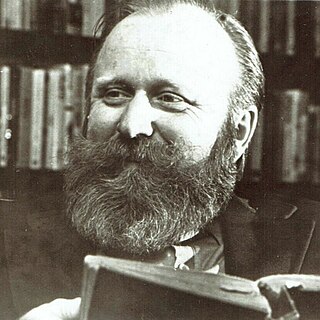
Franklin Patrick Herbert Jr. was an American science-fiction author, best known for his 1965 novel Dune and its five sequels. He also wrote short stories and worked as a newspaper journalist, photographer, book reviewer, ecological consultant, and lecturer.
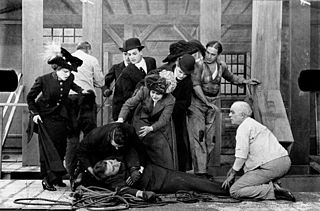
A Corner in Wheat is a 1909 American short silent film which tells of a greedy tycoon who tries to corner the world market in wheat, destroying the lives of the people who can no longer afford to buy bread. It was directed by D. W. Griffith and adapted by Griffith and Frank E. Woods from a novel and a short story by Frank Norris, titled The Pit and A Deal in Wheat.
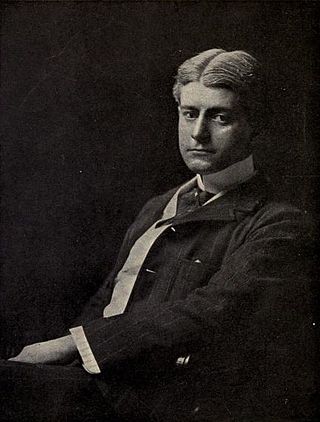
Benjamin Franklin Norris Jr. was an American journalist and novelist during the Progressive Era, whose fiction was predominantly in the naturalist genre. His notable works include McTeague: A Story of San Francisco (1899), The Octopus: A Story of California (1901) and The Pit (1903).
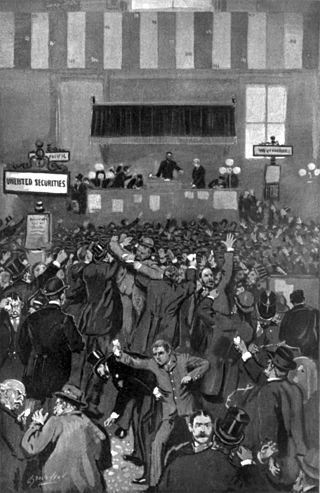
The Panic of 1893 was an economic depression in the United States. It began in February 1893 and officially ended eight months later, but the effects from it continued to be felt until 1897. It was the most serious economic depression in history until the Great Depression of the 1930s. The Panic of 1893 deeply affected every sector of the economy and produced political upheaval that led to the political realignment and the presidency of William McKinley.
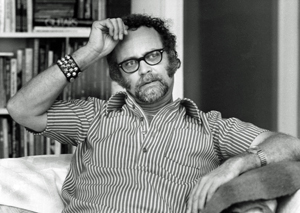
William Patrick "W. P." Kinsella was a Canadian novelist and short story writer, known for his novel Shoeless Joe (1982), which was adapted into the movie Field of Dreams in 1989. His work often concerned baseball, First Nations people, and Canadian culture.

Tracy Raye Hickman is an American fantasy author and designer of games and virtual reality (VR) experiences. He co-authored the original Dragonlance novels with Margaret Weis as well as numerous other books. He also designed and created role playing game material while working for TSR and has cowritten novels with his wife, Laura Hickman. He is the author or co-author of over 60 books.

Charles Gilman Norris was an American novelist. A native of Chicago, Norris worked as a journalist for some years before finding success as a novelist and playwright. His first book was The Amateur (1916). His other novels include Salt (1919), Brass: A Novel of Marriage (1921), Bread (1923), Pig Iron (1926), Seed: A Novel of Birth Control (1930), Zest (1933), Hands (1935), and Flint (1944). He also published three plays: The Rout of the Philistines, A Gest of Robin Hood, and Ivanhoe: A Grove Play (1936).

Studs Lonigan is a novel trilogy by American author James T. Farrell: Young Lonigan (1932), The Young Manhood of Studs Lonigan (1934), and Judgment Day (1935). In 1998, the Modern Library ranked the Studs Lonigan trilogy 29th on its list of the 100 best English-language novels of the 20th century.

The Journey of Natty Gann is a 1985 American adventure film directed by Jeremy Paul Kagan, produced by Walt Disney Pictures and released by Buena Vista Distribution. The film introduced Meredith Salenger and also starred John Cusack, Lainie Kazan and Ray Wise.

The Farseer trilogy is a series of fantasy novels by American author Robin Hobb, published from 1995 to 1997. It is often described as epic fantasy, and as a character-driven and introspective work. Set in and around the fictional realm of the Six Duchies, it tells the story of FitzChivalry Farseer, an illegitimate son of a prince who is trained as an assassin. Political machinations within the royal family threaten his life, and the kingdom is beset by naval raids. Fitz possesses two forms of magic: the telepathic Skill that runs in the royal line, and the socially despised Wit that enables bonding with animals. The series follows his life as he seeks to restore stability to the kingdom.

The Mussel Slough Tragedy was a dispute over land titles between settlers and the Southern Pacific Railroad (SP) that took place on May 11, 1880, on a farm located 5.6 miles (9 km) northwest of Hanford, California, in the central San Joaquin Valley, leaving seven people dead.

The Octopus: A Story of California is a 1901 novel by Frank Norris and was the first part of an uncompleted trilogy, The Epic of the Wheat. It describes the wheat industry in California, and the conflicts between wheat growers and a railway company. Norris was inspired to write the novel by the Mussel Slough Tragedy involving the Southern Pacific Railroad. In the novel he depicts the tensions between the railroad, the ranchers and the ranchers' League. The book emphasized the control of "forces", such as the power of railroad monopolies, over individuals. Some editions of the work give the subtitle as A California Story.
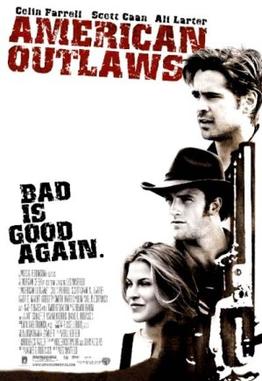
American Outlaws is a 2001 American Western action film directed by Les Mayfield and starring Colin Farrell, Scott Caan, and Ali Larter.

The Pit: A Story of Chicago is a 1903 novel by Frank Norris. Set in the wheat speculation trading pits at the Chicago Board of Trade Building, it was the second book in what was to be the trilogy The Epic of the Wheat. The first book, The Octopus, was published in 1901. Norris died unexpectedly in October 1902 from appendicitis, leaving the third book, The Wolf: A Story of Empire, incomplete. Together the three novels were to follow the journey of a crop of wheat from its planting in California to its ultimate consumption as bread in Western Europe.

Peter F. Wolf is an Austrian composer, producer, songwriter and arranger. In 2002, he was awarded the Austrian Cross of Honour for Science and Art, 1st class. Wolf is married to fashion model and songwriter Lea Wolf-Millesi, and lives in Malibu, California.
Paul Tietjens was an American composer of the early twentieth century. He is best known for composing music for The Wizard of Oz, the 1902 stage adaptation of L. Frank Baum's The Wonderful Wizard of Oz, one of the great popular hits of its era.

Chicago literature is writing, primarily by writers born or living in Chicago, that reflects the culture of the city.

The Big Land is a 1957 American Western film in Warnercolor directed by Gordon Douglas and starring Alan Ladd, Virginia Mayo and Edmond O'Brien.
Brian Staveley is an American fantasy writer. He has written an epic fantasy trilogy, The Chronicle of the Unhewn Throne, the first volume of a sequel series, Ashes of the Unhewn Throne, a prequel novel, Skullsworn, and a selection of short fiction.

Black Leopard, Red Wolf is a 2019 fantasy novel by Jamaican writer Marlon James. It is the first book of the Dark Star Trilogy. The novel draws on African history and mythology, blended into the landscape of the North Kingdom and the South Kingdom, and the political tensions between these two warring states, as well as various city-states and tribes in the surrounding landscape. The rights to produce a film adaptation were purchased by Michael B. Jordan in February 2019 prior to release of the book.
References
- ↑ Brown, Richard Maxwell (1991). No Duty to Retreat: Violence and Values in American History and Society. Oxford University Press. p. 219. ISBN 0-19-504510-6.
- ↑ Starr, Kevin. (1986). Introduction. The Octopus. New York: Viking Penguin, Inc. 1986